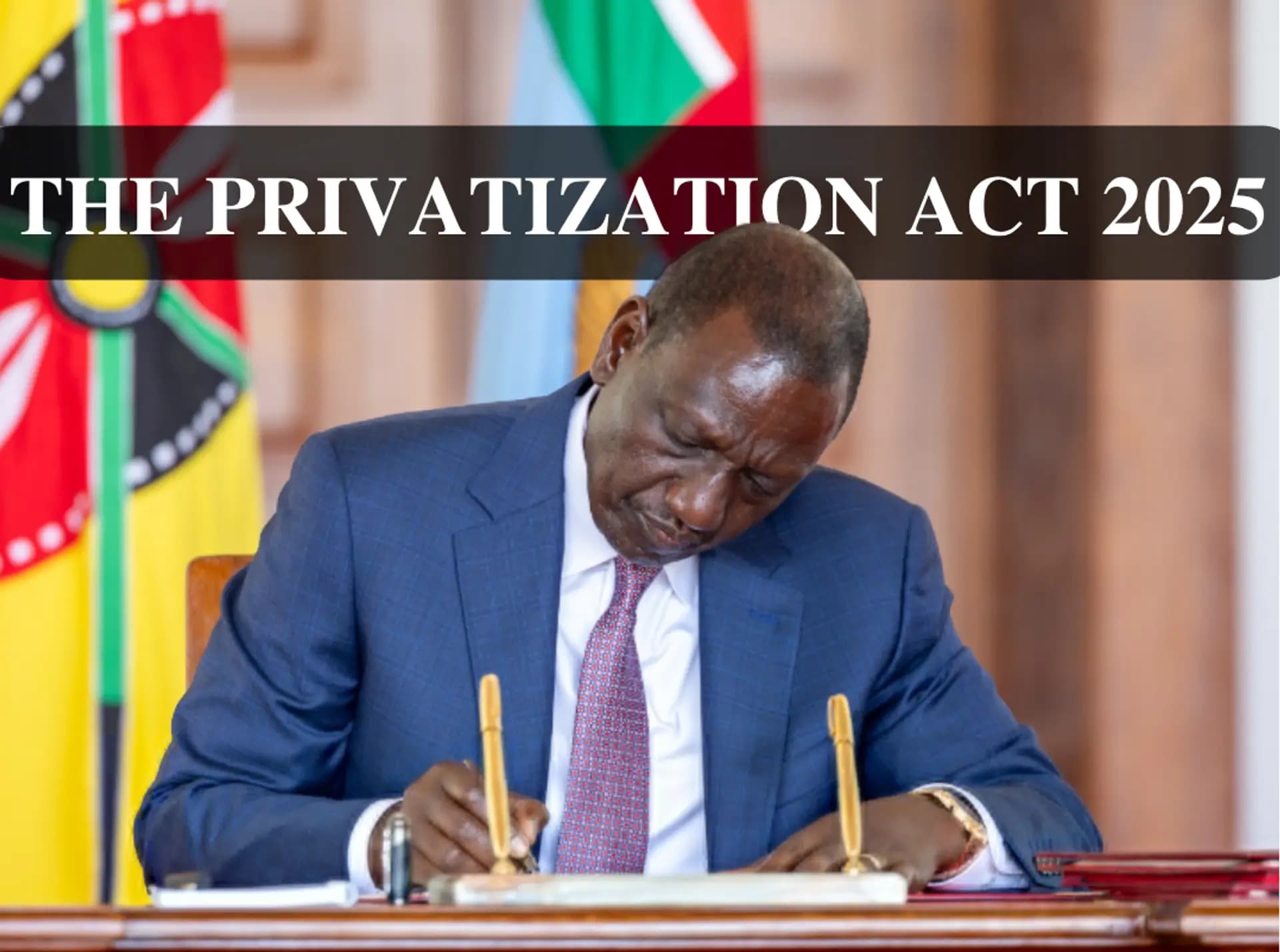We're loading the full news article for you. This includes the article content, images, author information, and related articles.
The government's push to privatize key national corporations to manage debt faces mounting criticism from experts and opposition leaders, who warn of undervaluing strategic assets and risking long-term economic control.

NAIROBI, KENYA – Friday, 8 November 2025, 09:00 EAT – The Kenyan government’s accelerated programme to sell shareholding in at least 11 state-owned enterprises (SOEs) has ignited a fierce national debate, pitting the administration's stated goals of fiscal discipline against widespread concerns over economic sovereignty, transparency, and the potential long-term cost to citizens. The move, championed by President William Ruto's administration, aims to raise significant revenue to service public debt and reduce the financial burden of underperforming parastatals on the exchequer.
Among the prominent entities earmarked for privatisation are the iconic Kenyatta International Convention Centre (KICC), the profitable Kenya Pipeline Company (KPC), New Kenya Cooperative Creameries (New KCC), and the Kenya Seed Company. According to the National Treasury, the combined asset value of the initial 11 corporations exceeds KSh 200 billion. The government argues that the sales will unlock private sector capital, improve efficiency, and generate funds for development projects, thereby supporting the 2025/26 budget.
The privatisation drive is anchored in the new Privatisation Act, 2023, which was signed into law by President Ruto on October 9, 2023. This legislation was designed to replace the 2005 Act, streamlining the process by granting the National Treasury, through a newly formed Privatisation Authority, more direct power to formulate and execute the sales programme, subject to Cabinet and National Assembly approval. Proponents argue this fast-tracks a process that had stalled for years, hindering economic reforms.
Treasury Cabinet Secretary Njuguna Ndung'u stated that the criteria for selecting the entities included their strategic nature, the need to avoid creating unregulated monopolies, and the potential to reduce the drain on government resources. For profitable firms like KPC, the government's justification is that a sale will attract private investment for expansion and enhance competition. For loss-making entities like the National Oil Corporation of Kenya (NOCK), the goal is to cut taxpayer-funded bailouts.
The push for privatisation also aligns with recommendations from international financial institutions. The International Monetary Fund (IMF), in particular, has consistently cited the restructuring of underperforming SOEs as a key condition for its financing arrangements with Kenya, arguing they remain a significant strain on the national budget.
Despite the government's justifications, the programme has faced a storm of criticism and legal challenges. Opposition leaders, civil society groups, and the public have raised alarms about the speed and perceived lack of transparency of the process. A key point of contention was the reduced oversight role for Parliament under the 2023 Act, which critics warned could open the door to corruption and the undervaluing of national assets.
These concerns culminated in a significant legal blow on September 24, 2024, when the High Court of Kenya declared the Privatisation Act, 2023, unconstitutional. Justice Chacha Mwita ruled that the law was passed without adequate public participation, a constitutional requirement. The court specifically noted that a national monument like KICC must be preserved and protected, questioning the basis of its sale. This ruling effectively halted the privatisation process, forcing the government back to the drawing board and leading to the drafting of a new bill in 2025 to address the court's concerns.
Economists remain divided on the long-term impact. Proponents believe that if managed transparently, privatisation can invigorate the Nairobi Securities Exchange (NSE), which has not seen a major state-led Initial Public Offering (IPO) since Safaricom in 2008, and improve the performance of key sectors. The sale of a 65% stake in KPC alone is projected to raise as much as KSh 100 billion.
However, critics warn of the risks of selling strategic assets, particularly profitable ones like KPC, which plays a crucial role in the region's energy logistics. Concerns have been raised that private ownership could lead to higher consumer prices and prioritise profit over public service. Furthermore, reports from the Controller of Budget have previously highlighted financial mismanagement and inefficiency in many parastatals, suggesting that internal governance reforms could be an alternative to outright sales.
As Kenya navigates immense pressure from a high public debt load, the debate over selling state assets touches a raw nerve. The central question remains whether this privatisation wave is a necessary, pragmatic solution to a fiscal crisis or a hasty fire sale of the nation's "family silver" with consequences that will be borne by future generations. The answer will depend on the government's commitment to a transparent, accountable, and legally sound process that prioritises the long-term interests of the Kenyan public. FURTHER INVESTIGATION REQUIRED.
Keep the conversation in one place—threads here stay linked to the story and in the forums.
Sign in to start a discussion
Start a conversation about this story and keep it linked here.
Other hot threads
E-sports and Gaming Community in Kenya
Active 9 months ago
The Role of Technology in Modern Agriculture (AgriTech)
Active 9 months ago
Popular Recreational Activities Across Counties
Active 9 months ago
Investing in Youth Sports Development Programs
Active 9 months ago